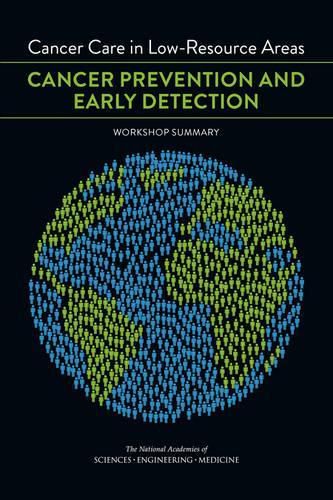Readings Newsletter
Become a Readings Member to make your shopping experience even easier.
Sign in or sign up for free!
You’re not far away from qualifying for FREE standard shipping within Australia
You’ve qualified for FREE standard shipping within Australia
The cart is loading…






Though cancer was once considered to be a problem primarily in wealthy nations, low- and middle-income countries now bear a majority share of the global cancer burden, and cancer often surpasses the burden of infectious diseases in these countries. Effective low-cost cancer control options are available for some malignancies, with the World Health Organization estimating that these interventions could facilitate the prevention of approximately one-third of cancer deaths worldwide. But these interventions remain inaccessible for many people in the world, especially those residing in low-resource communities that are characterized by a lack of funds ? on an individual or societal basis ? to cover health infrastructure and care costs.
Few guidelines and strategies for cancer control consider the appropriateness and feasibility of interventions in low-resource settings, and may undermine the effectiveness of these efforts. For example, interventions that are designed for high-resource settings may not account for important considerations in low-resource settings, such as resource constraints, infrastructure requirements, or whether a community has the capacity to deliver downstream cancer care. Patients in resource-constrained communities continue to face delayed diagnoses of cancer, potentially resulting in the diagnosis of later stage cancers and worsened patient outcomes. In addition, social stigmas, geopolitical issues, and cultural norms may limit access to cancer care in certain communities.
Recognizing the challenges of providing cancer care in these settings, the National Academies of Sciences, Engineering, and Medicine developed a workshop series examining cancer care in low-resource communities. This report summarizes the presentations and discussions from the first workshop, which focused on cancer prevention and early detection.
$9.00 standard shipping within Australia
FREE standard shipping within Australia for orders over $100.00
Express & International shipping calculated at checkout
Though cancer was once considered to be a problem primarily in wealthy nations, low- and middle-income countries now bear a majority share of the global cancer burden, and cancer often surpasses the burden of infectious diseases in these countries. Effective low-cost cancer control options are available for some malignancies, with the World Health Organization estimating that these interventions could facilitate the prevention of approximately one-third of cancer deaths worldwide. But these interventions remain inaccessible for many people in the world, especially those residing in low-resource communities that are characterized by a lack of funds ? on an individual or societal basis ? to cover health infrastructure and care costs.
Few guidelines and strategies for cancer control consider the appropriateness and feasibility of interventions in low-resource settings, and may undermine the effectiveness of these efforts. For example, interventions that are designed for high-resource settings may not account for important considerations in low-resource settings, such as resource constraints, infrastructure requirements, or whether a community has the capacity to deliver downstream cancer care. Patients in resource-constrained communities continue to face delayed diagnoses of cancer, potentially resulting in the diagnosis of later stage cancers and worsened patient outcomes. In addition, social stigmas, geopolitical issues, and cultural norms may limit access to cancer care in certain communities.
Recognizing the challenges of providing cancer care in these settings, the National Academies of Sciences, Engineering, and Medicine developed a workshop series examining cancer care in low-resource communities. This report summarizes the presentations and discussions from the first workshop, which focused on cancer prevention and early detection.